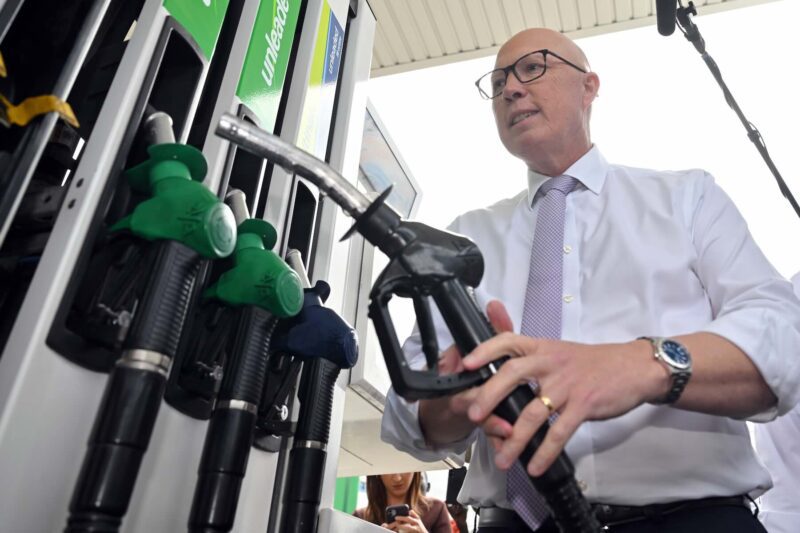The Liberal party is right, or at least Bridget McKenzie is, and possibly Peter Dutton agrees with her; EV drivers should pay their fair share to use the roads
Whilst they are very light on details and won’t commit to anything specific, and especially not to a road user charge; I’m very much in favor of a user pays system, not least because I don’t own a car, so I hope Peter Dutton also wants to lower my taxes to take into account the roads I don’t use.
Roads are a public good that need paying for, just like hospitals, schools, libraries, and public transport.
And like all of these public goods they are paid for, by a combination of general taxation like income tax and GST , specific taxes, like fuel excise and stamp duty, and user fees. If we don’t find the money we don’t get these services. How we balance these get the services we need is the heart and soul of politics.
Governments, very sensibly, rarely hypothecate taxes; that is to say, they don’t dedicate a specific revenue stream to a specific expenditure. So we are left in a position where a range of taxes fill a general fund that is used to cover a range of expenses, roads being just one of these.
Peter Dutton makes a well worn argument that as the revenue from fuel excise decreases then extra revenue needs to be found to replace it.
Fair enough. He also says that an equitable outcome would be for EV drivers to pay based on the amount of roads they consume in terms of the kilometres they drive as this is equivalent to the fuel excise.
OK. But surely this is a blunt instrument. How do we equitably measure the consumption of road resources? Surely an equitable system would charge everyone in the same way?
Comprehensive road pricing, that is charging everyone for the roads they consume is a great policy. A great policy, but terrible politics and surely not what Peter Dutton was reaching for, when he grabbed for the stick to beat the mythical latte sipping, inner suburban EV driver.
As an aside, the Coalition could really do with taking a look at the EV sales data last year: Sales were sustained, not by the inner city teal voting electorates, but by the outer suburban electorates the coalition must win to have a hop of taking power.
Electorates where people are poorly served by public transport, have to drive to access work, education, shops and services and where you can really benefit financially from a notated lease tax incentive on an EV to access the low operating costs of electric motoring.
The Coalition want to remove a cost of living benefit from people who’ve had to choose an outer suburb to afford a home, suburbs where driving is the only option. Is this what equity looks like?
If we were to implement road user charging, then we’d have to work out how we would charge. What we would value? Do heavier vehicles pay more because they do more damage? We already do this with registration. Do smaller vehicles pay less because they take up less space – as happens in Japan where light Kei format vehicles pay less?
Does someone driving down Punt Road in Melbourne at 8am on a Monday morning pay the same as driving down a dirt road in the NT at 6am on a Sunday morning? Singapore dynamically prices its scarce road resources. Do we price based on air-pollution as happens in London?
Equity matters. But equity is hard, especially when it upends an entrenched system that people have grown so used to they hardly even notice.
We have a choice – to dodge the issue and choose either higher general taxation or lower spend on other public services to make up for the lost revenue from fuel excise, or to come up with an equitable system of paying for and allocating our public goods.
These are all very reasonable questions To ask of our candidate a this week, but it’s a brave politician that will grasp this nettle other than to use it as a tool to beat a small, important and growing segment of the electorate.
So Peter, Bridget, will you send me a cheque every time I bike to work?

Ed Lynch-Bell is Principal at Second Mouse, dedicated to building more sustainable energy tech and mobility products, services and businesses. Ed is also a co-host of the Melbourne and Sydney EV Meet-ups, bringing the e-mobility industry together.


